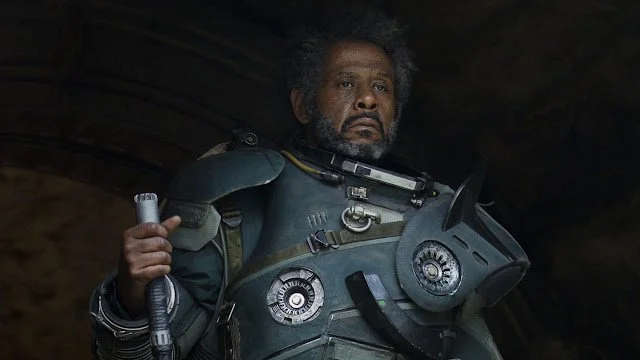A Look Into The Politics Of ‘Star Wars’
In "Common Ground", the tenth episode of the first season of Star Wars: The Bad Batch, we see a crowd of civilians on the planet Raxus protesting their government's recent collusion with the Galactic Empire. In response to their defiance, the world's new Imperial leaders have the protesters cornered by AT-TE walkers and broken up by clone troopers. Many fans online have pointed out the clear parallels between this scene and the infamous protests and massacre that occurred in Tiananmen Square, Beijing in 1989. While Star Wars is certainly no stranger to referencing real world events, this particular parallel was met with criticism from fans and particularly fans of color, who felt its emulation of the protests was mostly surface level and inadvertently lent itself to sinophobic tropes especially with the planet's Imperial leader Captain Bragg being coded as Asian and being opposed by non-Asian rebels. Sadly, for every strong political parallel Star Wars gives us, there are also a handful of problematic ones such as the one described above.
Despite what a certain subset of angry dudes online would have you believe, Star Wars has always been political. George Lucas himself has stated many times over the years that the conflict of the original Star Wars, now known as A New Hope, was heavy inspired by the Vietnam War and the forms of American imperialism that were commonly seen during that period. Those parallels continue even to this day. In Revenge of the Sith, we see Supreme Chancellor Sheev Palpatine using the Separatist Alliance as a manufactured threat in order to seize power and push the Galactic Republic into an unwinnable war. In The Clone Wars animated series, we see the Death Watch, a radically conservative Mandalorian terrorist cell, attempting to usurp Mandalore's current government and return the planet to its warrior past. In The Force Awakens, we see the First Order, a cult-like military force rise from the ashes of the old Empire in order to overthrow the current government and install a totalitarian regime.
RELATED: Did You Know Grand Moff Tarkin Protected The Rebellion Before 'A New Hope'
The point is Star Wars has never shied away from real world commentary. Although that is not to say that it has always been completely successful. Aside from "Common Ground,” there are other political messages in the space-faring franchise that have been less than consistent with what they were trying to say. A prime example of this is the character of Saw Gerrera.
First introduced in The Clone Wars and later reinvigorated by Rogue One: A Star Wars Story, Saw is a character who is meant to represent the dirtier, less heroic side of the Rebellion. He is a man so pushed to the edge by the loss of his friends and family that he is willing to do whatever it takes to secure victory against the Empire, even if it means endangering civilians and butchering politicians, as seen in Beth Revis' 2017 Rogue One companion novel Rebel Rising.
Now full transparency, I love Saw. He is one of my favorite characters and easily one of the most complex and complicated characters in the current Star Wars canon. However, I also recognize that the way his actions are framed feel a bit counterintuitive to the franchise's pro-Rebellion message. The fact of the matter is that real world revolutions are never as dashing or clean cut as they are in the galaxy far, far away. Real world rebels fighting against real world fascist systems often have no choice but to use constant, if not extreme violence just to survive. While I do like that Saw has flaws and does immoral things in the name of his cause (it makes him all the more interesting), I also understand that framing him as "the extreme rebel" carries the unfortunate implication that committing violence against authority makes you a worse person, which clearly is not the case. And it is that kind of contradictory messaging that I find the most frustrating when it comes to Star Wars' politics.
Violence is necessary for removing corrupt leaders, yet it also makes you worse. Anger is a useful tool for fighting against oppression, yet it always leads to the dark side. It is good to rebel, yet only in certain ways. Star Wars has always been left-leaning, yet it struggles to fully commit to those ideals. I do not expect a multi-million dollar franchise owned by a monolithic corporate conglomerate to have pitch perfect politics 24/7. At the end of the day, what I truly want from Star Wars is consistency when it comes to its politics, not just surface level references to real world events or wishy-washy portrayals of "extreme" rebellion. I want to see clear, definitive politics that make its themes and messages all the more poignant and meaningful.
Star Wars is a modern mythology. And often, the best myths are those that explain the world to us in ways that make it easier for us to understand.
READ NEXT: Will We See A Clone Rebellion In 'The Bad Batch?'



